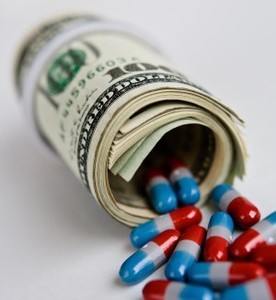On 17 June 2013 the US Supreme Court ruled 5-3 in favour of the Federal Trade Commission (FTC) in the case of FTC versus Actavis with respect to reverse patent settlements or ‘pay-for-delay’, as the FTC terms these deals.
Pay-for-delay settlements involve agreements between brand-name and generics drug manufacturers. In such deals the companies settle patent disputes by exchanging a payment for a commitment to refrain from marketing a generic drug until a certain date.
The FTC accused generics maker Actavis of making a deal with AbbVie’s subsidiary Solvay. Actavis allegedly accepted payments of US$31–42 million a year from Solvay to keep their lower cost generic version of Solvay’s Androgel testosterone therapy off the market until 2015.
The FTC believes that pay-for-delay deals are anticompetitive, delaying the entry of cheaper generics, and costing American citizens US$3.5 billion annually. Both brand-name and generics manufacturers have argued against the FTC, however, saying that these deals actually speed up the entry of generics onto the market [1].
The US Supreme Court decision sides with the FTC, overruling the previous decision made by the US Court of Appeals for the Eleventh Circuit, which dismissed the FTC’s complaint. The decision allows the FTC to pursue pharmaceutical companies with lawsuits challenging any such patent settlements between brand-name and generics companies.
The court in its opinion did not totally agree with the FTC’s position, stating that it ‘declines to hold that reverse payment settlement agreements are presumptively unlawful’.
FTC Chairwoman Edith Ramirez said that the decision was ‘a significant victory for American consumers, American taxpayers, and free markets’, adding that the FTC was looking forward ‘to moving ahead with the Actavis litigation and showing that the settlements violate antitrust law’. The FTC is also ‘studying the Court’s decision and assessing how best to protect consumers’ interests in other pay-for-delay cases, according to Ms Ramirez.
Mr Paul Bisaro, President and CEO of Actavis, said that although he was pleased that the court ‘did not rule that settlement agreements are presumptively unlawful’ he thought that the decision would ‘place an additional and unnecessary administrative burden on our industry’. He added that ‘patent settlements have saved and continue to save consumers billions of dollars, and ensure more-timely introduction of generic competition’.
Pay-for-delay deals are not just an issue for the US; the European Commission recently reported that it would fine nine drug manufacturers for alleged pay-for-delay deals in Europe [2].
Related articles
Brand-name drug and generics makers fight to save pay-for-delay
EC accuses J&J and Novartis of delaying generic fentanyl
Problematic patent settlements in EU on the decrease
References
1. GaBI Online - Generics and Biosimilars Initiative. Pay-for-delay on the increase in the US [www.gabionline.net]. Mol, Belgium: Pro Pharma Communications International; [cited 2013 Jun 21]. Available from: www.gabionline.net/Reports/Pay-for-delay-on-the-increase-in-the-US
2. GaBI Online - Generics and Biosimilars Initiative. EU to fine 9 drugmakers over pay-for-delay deals [www.gabionline.net]. Mol, Belgium: Pro Pharma Communications International; [cited 2013 Jun 21]. Available from: www.gabionline.net/Policies-Legislation/EU-to-fine-9-drugmakers-over-pay-for-delay-deals
Permission granted to reproduce for personal and non-commercial use only. All other reproduction, copy or reprinting of all or part of any ‘Content’ found on this website is strictly prohibited without the prior consent of the publisher. Contact the publisher to obtain permission before redistributing.
Copyright – Unless otherwise stated all contents of this website are © 2013 Pro Pharma Communications International. All Rights Reserved.
Source: FTC, US Supreme Court








 0
0











Post your comment